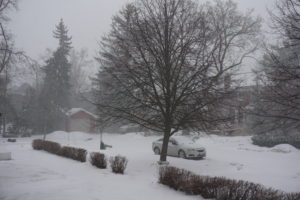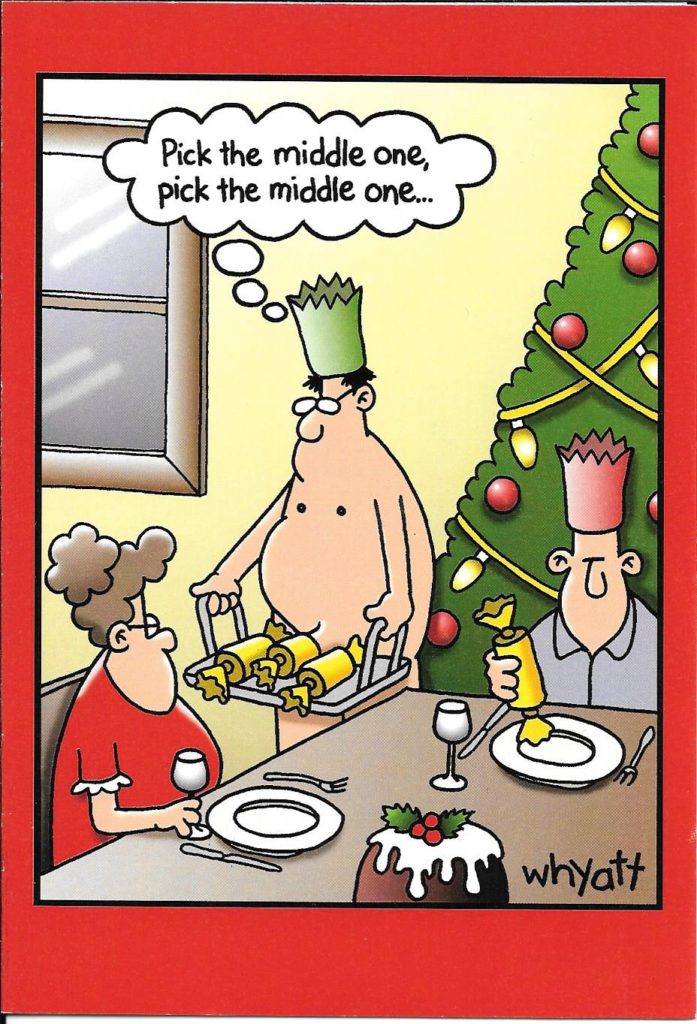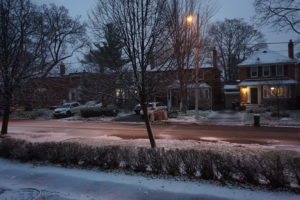 February 20: I recently watched a documentary called “Planetary” about the many environmental issues facing our world. I thought it was quite well-done and raised an interesting perspective. It began with a brief meander through early space travel and concluded with Apollo 11. That mission was the first to land on the moon. It provided the first photograph of earth from another celestial body as it rose over the horizon of the moon. That well-known picture reinforced the notion that the world was a single entity; we were all part of one species existing in the blackness of space.
February 20: I recently watched a documentary called “Planetary” about the many environmental issues facing our world. I thought it was quite well-done and raised an interesting perspective. It began with a brief meander through early space travel and concluded with Apollo 11. That mission was the first to land on the moon. It provided the first photograph of earth from another celestial body as it rose over the horizon of the moon. That well-known picture reinforced the notion that the world was a single entity; we were all part of one species existing in the blackness of space.
Since then, much has transpired to degrade the condition of our environment. The video provided a number of environmentalists who discussed the major threats and calamities we face. If you have been paying attention for the last few years, not much would come as a surprise. What was somewhat unusual was the inclusion of further commentary from experts such as a Zen priest, a first-nations elder and several philosophers.
Their viewpoint was somewhat different in that they did not discuss the environmental issues per se, but rather the perspective we have when dealing with them. They would suggest that as we have grown from smaller, agrarian settlements into more urbanized societies we have lost the understanding that we are collectively part of the environment. We no longer see ourselves as citizens of that little blue ball in space, but as individuals separated from the environment and, by extension, responsibility for its problems.
 Our problems are immense and it’s easy and understandable on one level to adopt the view that nothing we do will change it. Unfortunately, this leads to the attitude that global warming will not be affected one iota if I leave my Suburban idling outside Starbucks while I run in for my morning one-shot extra-hot low-fat Chi Latte. I took the video to heart because, as frequent reader(s) will know, I love fast cars and riding my motorcycle around Europe burning dinosaurs for days on end. Shaming Suburban drivers while indulging my own passions is hypocritical. So what is to be done ?
Our problems are immense and it’s easy and understandable on one level to adopt the view that nothing we do will change it. Unfortunately, this leads to the attitude that global warming will not be affected one iota if I leave my Suburban idling outside Starbucks while I run in for my morning one-shot extra-hot low-fat Chi Latte. I took the video to heart because, as frequent reader(s) will know, I love fast cars and riding my motorcycle around Europe burning dinosaurs for days on end. Shaming Suburban drivers while indulging my own passions is hypocritical. So what is to be done ?
The litany of issues we face is fundamentally not readily solved by individuals or individual activities. We need a collective view, as displayed by our governments, in order to begin solving some of these problems. While some governments are more pro active than others, there remains far too much yet to be done. Governments seldom do anything unless they are sure there is widespread support for their action – they want to get re-elected. Given that most members of government on all levels are entitled middle-aged white guys with a vested interest in maintaining the status quo, change is unlikely unless – as was the case in the movie “Network” – we all get mad as hell and say that we are not going to take it anymore. As a generation, we need to move the need for environmental change to the top of the electoral agenda. We need to be prepared to pay – monetarily and in inconvenience – for the damage we have done. We need to show leadership and take ownership of the issue and push for solutions.
There is not a lot of time remaining for the environment, or for my generation, which will die-off just as things are getting bad. We will avoid the most serious consequences of our own actions, so it will be hard to motivate us to take responsibility for the damage we have already done. The generation which will be most dramatically affected by the ways in which the world is changing is too busy trying to find a job and raise a family to get involved with politics. So one thing we could all do is talk to our kids, and their children, to encourage them to become more involved in environmental issues.
 The pessimist in me believes that it may already be too late. Case in point: this pathetic polar bear seen wandering near a hunting camp in the Arctic looking for food. Our environment has changed so drastically and so quickly that, even if we could stop further damage right now, it seems to me that the momentum of change would carry us far beyond any reasonable limit to the damage we have done. Species that are now extinct will not return, and the ice caps will not regenerate in the face of continued warming. We don’t have long ….
The pessimist in me believes that it may already be too late. Case in point: this pathetic polar bear seen wandering near a hunting camp in the Arctic looking for food. Our environment has changed so drastically and so quickly that, even if we could stop further damage right now, it seems to me that the momentum of change would carry us far beyond any reasonable limit to the damage we have done. Species that are now extinct will not return, and the ice caps will not regenerate in the face of continued warming. We don’t have long ….
http://weareplanetary.com/
* * * * *
PS: March 3: Today I attended I presentation of the first episode of a new Netflix series called Our Planet. It was very lush, with great photography and a sonorous narration by Sir David Attenborough. One of the themes they pursue is that the world is far more resilient than many recognize, so this episode at least, was somewhat more optimistic than my view stated above.
https://www.ourplanet.com/






